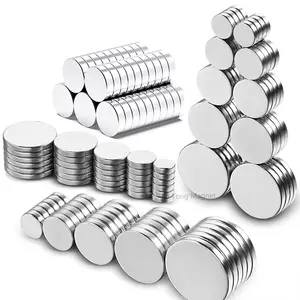Understanding Magnets: A Comprehensive Overview
Magnets are extraordinary materials that exert an attractive or repulsive force on other magnetic materials. These enchanting objects play a critical role in both small-scale applications like refrigerator magnets and large-scale uses in industrial machinery. Their magnetic field results from the alignment of atomic magnetic moments and varies in strength based on the material and design of the magnet.
Types of Magnets: Exploring Various Options
- Permanent Magnets: These retain their magnetic properties over time and do not require an external power source. Examples include neodymium and ceramic magnets.
- Temporary Magnets: These become magnets only when exposed to a magnetic field. They lose their magnetism outside the field.
- Electromagnets: Created by running an electric current through a coil of wire, these can be turned on and off or even adjusted for strength.
- Flexible Magnets: Made from a mix of magnet powder and plastic, ideal for applications like signage and promotional materials.
Applications of Magnets: Where They Are Found
- Industrial Uses: Magnets are vital in motors, generators, and magnetic separators.
- Medical Applications: MRI machines rely on strong magnets for imaging inside the body.
- Consumer Electronics: Speakers, headphones, and disk drives use magnets for sound and data storage.
- Home and Office: Magnetic closures for cabinets, fridge magnets for notes, and whiteboard markers with magnetic caps enhance functionality in everyday scenarios.
Features of Magnets: Advantages That Set Them Apart
- Strength: Depending on the type, magnets can have an array of strengths, making some suitable for heavy-duty applications.
- Durability: High-quality magnets are designed to resist corrosion and have a long lifespan.
- Customization: Magnets can be produced in various shapes and sizes, enabling tailored solutions for specific applications.
- Energy Efficiency: Many applications utilize magnets for energy savings by reducing friction and improving efficiency in machinery.


































